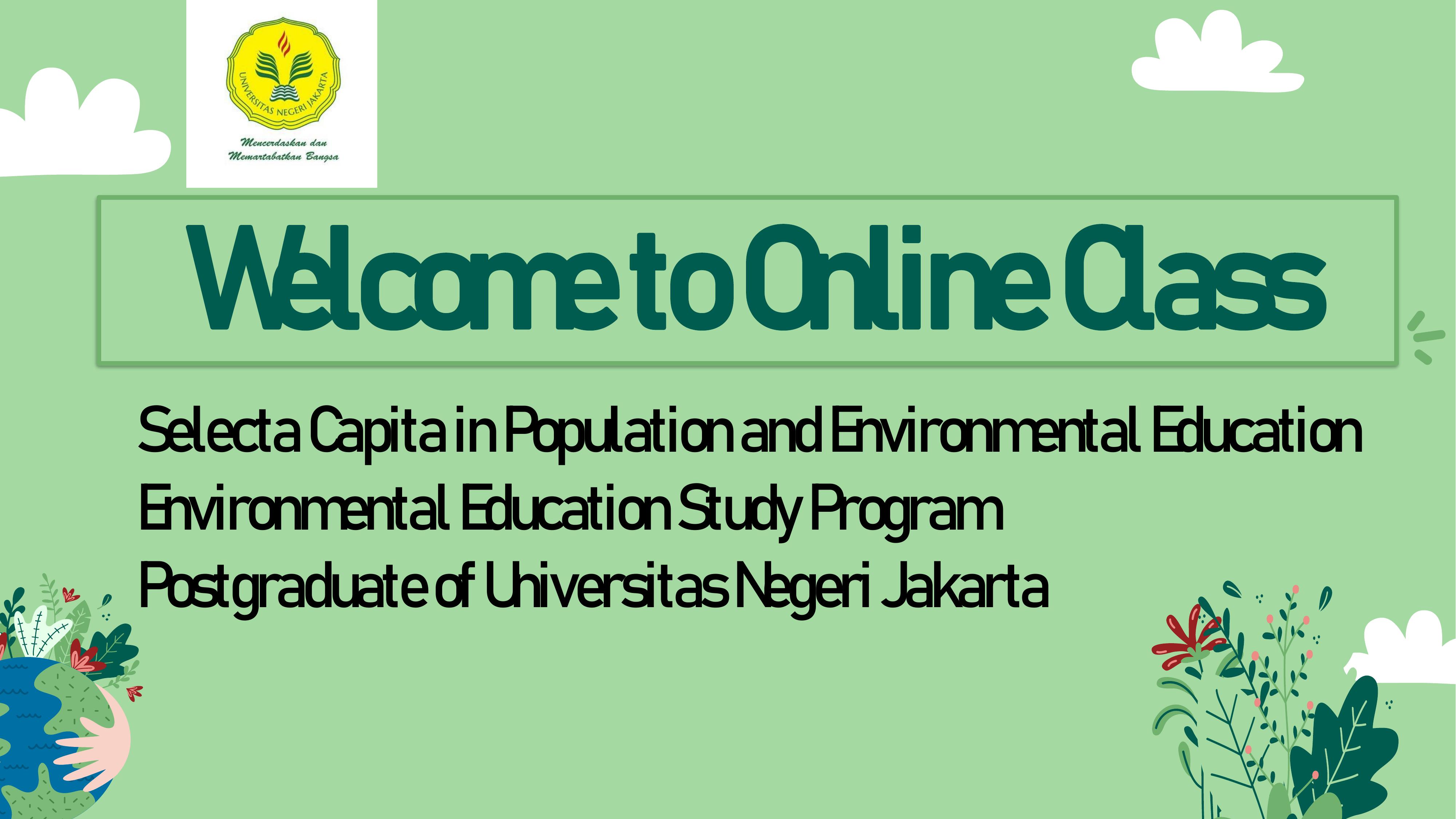Prof. Dr. Nadiroh, M.Pd
Prof. Dr. Hafid Abbas
Description
Capita Selecta In PKLH aims to give students the ability able to develop new knowledge, technology and or art in the field of environmental education or professional practice through research to produce creative, original and tested work that produces a variety of thoughts on this topic in PKLH and the importance of reviewing the issue of PKLH; solve the problems of science, technology, and or art in the field of environmental education through inter, multidisciplinary and transdisciplinary approaches through understanding concepts and reviewing various problems in PKLH, among others, climate change issues in PKLH; solve science, technology, and/or arts problems in the field of environmental education through an in-depth inter, multidisciplinary and transdisciplinary approach to regional and global environmental issues; manage, lead and develop research and development in terms of climate change with its impact on environmental problem solving measures, policy efforts that have been carried out; and understand, explain and review so as to innovate in problem solving PKLH and write articles in PKLH.
Learning Outcome1. Able to develop new knowledge about the theory of pedagogy, literacy, the benefits of technology and or new art about information in the field of population and environmental education (PKLH), to produce solutions for improving the quality of society life, nation and state through interdisciplinary or multidisciplinary and trans disciplinary approaches on current issues in PKLH;
2. Able to develop the science of population education and environmental education or professional practice through research to produce creative, original, and tested work in the field of population, environment and population education and environmental education to achieve national and global SDGS targets through analysis of various problems in PKLH;
3. Able to solve problems of science, technology and or related arts in the field of population and environmental education based on pedagogy theory, lite constellation, information technology through scientific methods with interdisciplinary or multidisciplinary and trans disciplinary approaches that internalize academic values, norms, and ethics, providing criticism and advice in order to solve problems in PKLH;
4. Able to develop a new theory in innovative learning by applying the concepts and principles of didactic-pedagogical in population education and the environment by utilizing science and technology oriented life skills (life skills) and contingency in improving the quality of the environment and human quality through problem solving PKLH;
1. Able to develop new knowledge, technology and or art in the field of environmental education or professional practice through research to produce creative, original and tested work that produces a variety of thoughts on this topic in PKLH and the importance of reviewing the issue of PKLH;
2. Able to solve the problems of science, technology, and or art in the field of environmental education through inter, multidisciplinary and trans disciplinary approaches through understanding concepts and reviewing various problems in PKLH, among others, climate change issues in PKLH;
3. Able to solve science, technology, and/or arts problems in the field of environmental education through an in-depth inter, multidisciplinary and trans disciplinary approach to regional and global environmental issues;
4. Able to manage, lead and develop research and development in terms of climate change with its impact on environmental problem solving measures, policy efforts that have been carried out;
5. Able to understand, explain and review so as to innovate in problem solving PKLH and write articles in PKLH.
- Enrolled students: 4

